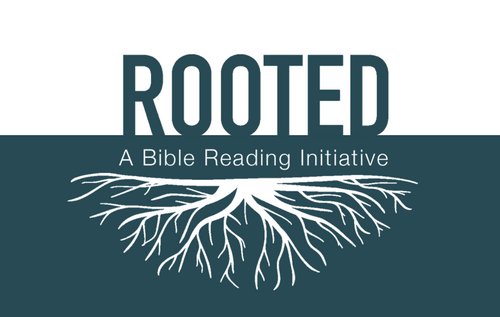
Latest Update
Welcome to Week 53 of Rooted.
This week we'll finish our journey through the New Testament in 2025 with James chapters 4 & 5. We hope and pray this has been a rewarding journey for you.
This week also marks the end of 2025 and the beginning of 2026. We hope you will consider continuing with Rooted in the coming year. As we go through the New Testament again, we will also be offering an alternative reading in the Old Testament.
As you read this week, consider the following questions:
• What does James have to say to us concerning making plans for our future? (Jam. 4:13-16)
• What can our prayers do? (Jam. 5:16-18)
Here are some potential answers to last week’s questions. Yours may differ:
Our Rooted Facebook Group will add to these answers each day.
• What sacrifices do we have to offer God? (Heb. 13:15-16) – A sacrifice of praise. And a sacrifice of doing good and sharing.
• What is the source of the gospel Paul preached? And why was that significant? (Gal. 1:11-12) – Paul received it directly from Jesus. And that gives it more authority than one he might have learned from another person.
• What was Paul’s attitude toward his life in Christ? (Gal. 2:20) – Paul considered his old life to be dead and gone. His focus now was living for Christ.
• What is the significance of being baptized into Christ? (Gal. 3:26-28) – Baptism into Christ is not water baptism. It is the baptism of the Spirit, immersing us into the body of Christ (1 Cor. 12:13). And, in Christ, we are all one. The differences that once divided us should no longer divide us.
• “When the fullness of time had come, God sent His Son” (Gal. 4:4). What does Paul mean by the fullness of time? – When the time was right. God has a perfect time for everything that occurs. What made the time Jesus came the perfect time is a matter of conjecture on our part. But it could have been because of Roman peace that allowed the gospel to so easily spread. It could also be because all the right people were in the right places to ensure that Jesus was able to minister among us and then go to the cross.
Helpful Resources:
• Rooted Facebook Group for online sharing
• New Testament overview video: by The Bible Project
• Bible Gateway is an online Bible app with many translations and some other free helps
• A Clay Jar devotionals
As always, we would love to hear about your experience in reading through the New Testament. Please share your questions and insights with us at rooted@lifepointnaz.church.
This week we'll finish our journey through the New Testament in 2025 with James chapters 4 & 5. We hope and pray this has been a rewarding journey for you.
This week also marks the end of 2025 and the beginning of 2026. We hope you will consider continuing with Rooted in the coming year. As we go through the New Testament again, we will also be offering an alternative reading in the Old Testament.
As you read this week, consider the following questions:
• What does James have to say to us concerning making plans for our future? (Jam. 4:13-16)
• What can our prayers do? (Jam. 5:16-18)
Here are some potential answers to last week’s questions. Yours may differ:
Our Rooted Facebook Group will add to these answers each day.
• What sacrifices do we have to offer God? (Heb. 13:15-16) – A sacrifice of praise. And a sacrifice of doing good and sharing.
• What is the source of the gospel Paul preached? And why was that significant? (Gal. 1:11-12) – Paul received it directly from Jesus. And that gives it more authority than one he might have learned from another person.
• What was Paul’s attitude toward his life in Christ? (Gal. 2:20) – Paul considered his old life to be dead and gone. His focus now was living for Christ.
• What is the significance of being baptized into Christ? (Gal. 3:26-28) – Baptism into Christ is not water baptism. It is the baptism of the Spirit, immersing us into the body of Christ (1 Cor. 12:13). And, in Christ, we are all one. The differences that once divided us should no longer divide us.
• “When the fullness of time had come, God sent His Son” (Gal. 4:4). What does Paul mean by the fullness of time? – When the time was right. God has a perfect time for everything that occurs. What made the time Jesus came the perfect time is a matter of conjecture on our part. But it could have been because of Roman peace that allowed the gospel to so easily spread. It could also be because all the right people were in the right places to ensure that Jesus was able to minister among us and then go to the cross.
Helpful Resources:
• Rooted Facebook Group for online sharing
• New Testament overview video: by The Bible Project
• Bible Gateway is an online Bible app with many translations and some other free helps
• A Clay Jar devotionals
As always, we would love to hear about your experience in reading through the New Testament. Please share your questions and insights with us at rooted@lifepointnaz.church.
